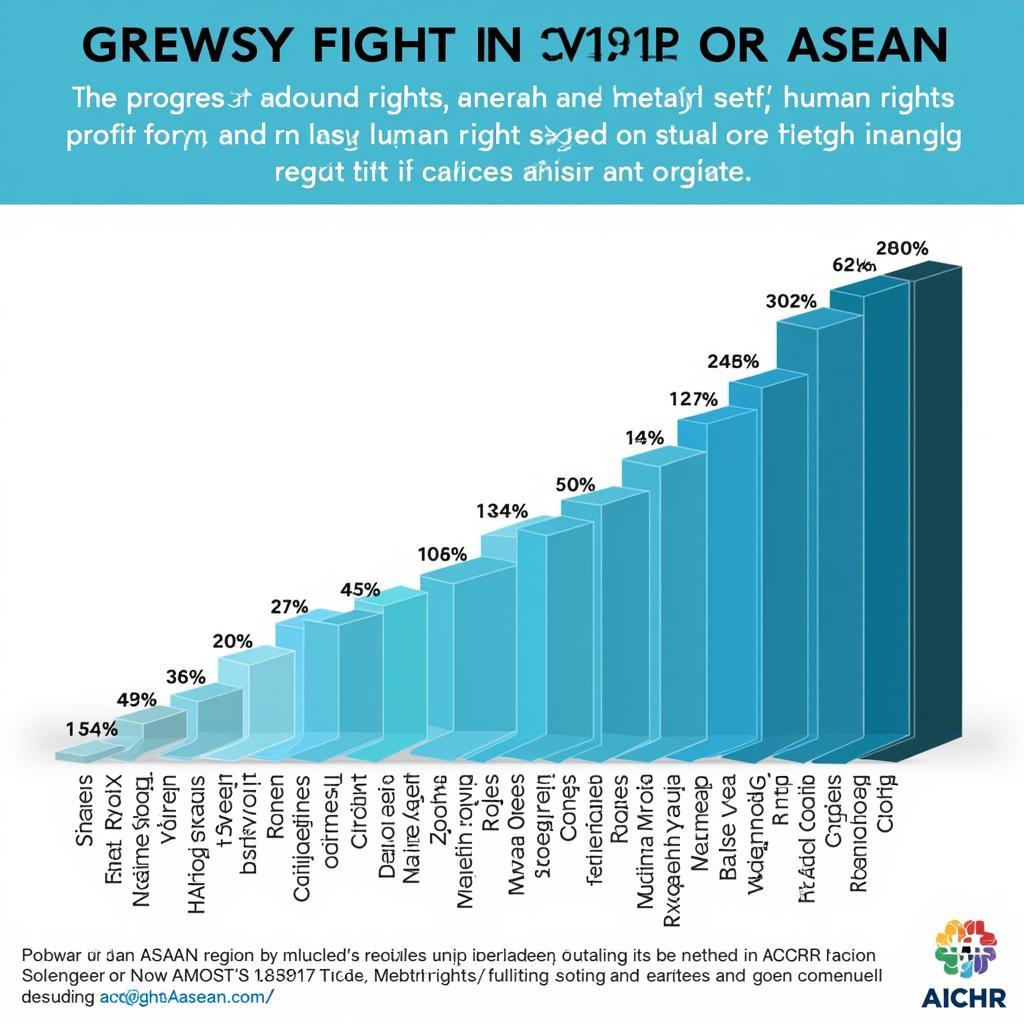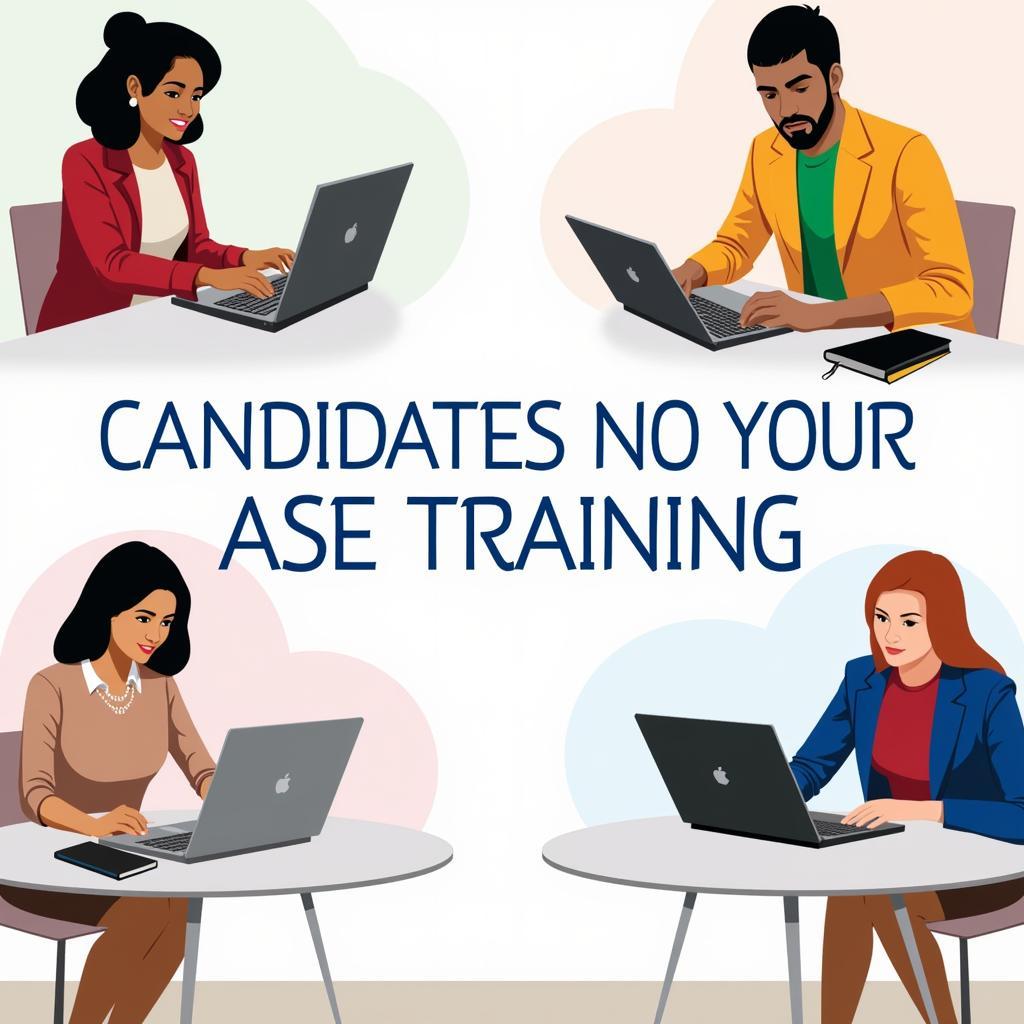The phrase “Ano Ang Layunin Ng Asean Human Rights Commission” translates from Tagalog to “what is the purpose of the ASEAN Human Rights Commission?”. This question reflects a growing interest in the role of human rights within the ASEAN region. While the ASEAN Intergovernmental Commission on Human Rights (AICHR) is not technically a commission in the traditional sense, understanding its purpose is crucial to grasping the complexities of human rights protection in Southeast Asia. The AICHR, established in 2009, aims to promote and protect human rights and fundamental freedoms of the peoples of ASEAN.
The Core Objectives of the AICHR: Protecting Human Rights in Southeast Asia
The AICHR’s mandate is multifaceted, encompassing a range of activities designed to strengthen human rights protections across ASEAN member states. The organization strives to develop strategies for the promotion and protection of human rights and fundamental freedoms, as outlined in the ASEAN Charter and other relevant international human rights instruments. It’s important to note that the AICHR operates within the unique political and social landscape of Southeast Asia, requiring a nuanced approach to human rights advocacy.
Key Responsibilities of the AICHR: “Ano ang Layunin ng ASEAN Human Rights Commission” Answered
“Ano ang layunin ng ASEAN Human Rights Commission” can be addressed by examining the AICHR’s key responsibilities, which include:
- Developing strategies for promotion and protection: The AICHR formulates action plans and programs to enhance human rights awareness and implementation.
- Providing advisory services: The AICHR offers recommendations to ASEAN member states on human rights matters and assists in the development of national human rights institutions.
- Engaging with civil society organizations: The AICHR fosters dialogue and collaboration with NGOs and other civil society actors to strengthen human rights protection at the grassroots level.
- Conducting research and studies: The AICHR undertakes research and analysis on human rights issues in the region to inform policy development and advocacy efforts.
- Raising awareness: The AICHR organizes workshops, seminars, and public awareness campaigns to promote a greater understanding of human rights principles.
Navigating the Challenges: The AICHR’s Role in a Complex Region
The AICHR operates within a diverse region with varying levels of economic development, political systems, and cultural norms. This complexity presents challenges in achieving uniform human rights standards across all member states. The principle of non-interference in the internal affairs of member states, while respecting national sovereignty, can sometimes hinder the AICHR’s effectiveness in addressing specific human rights concerns.
 A graph showing progress and setbacks in human rights within ASEAN
A graph showing progress and setbacks in human rights within ASEAN
“The AICHR’s greatest strength lies in its ability to facilitate dialogue and cooperation among ASEAN member states,” states Dr. Anya Sharma, a prominent Southeast Asian human rights expert. “By fostering a shared understanding of human rights principles, the AICHR can contribute significantly to positive change in the region.”
The Future of Human Rights in ASEAN: Strengthening the AICHR’s Mandate
The AICHR continues to evolve and adapt to the changing human rights landscape in Southeast Asia. Strengthening its mandate and increasing its capacity to address human rights violations effectively are crucial for its long-term success. This involves empowering the AICHR with greater investigative powers and ensuring its independence from political influence.
“Moving forward, it is crucial for the AICHR to prioritize vulnerable groups and address emerging human rights challenges, such as climate change and digital rights,” adds Dr. Sharma. “By focusing on these critical areas, the AICHR can ensure that its work remains relevant and impactful in the years to come.”
 Diverse group of people holding hands, symbolizing unity and human rights.
Diverse group of people holding hands, symbolizing unity and human rights.
Conclusion: The Ongoing Pursuit of Human Rights in ASEAN
Understanding “ano ang layunin ng ASEAN Human Rights Commission” is essential for anyone interested in the progress of human rights in Southeast Asia. While the AICHR faces significant challenges, its role in promoting dialogue, cooperation, and awareness is vital. Continued efforts to strengthen its mandate and empower it to address human rights violations effectively are crucial for ensuring a more just and equitable future for all people in the ASEAN region.
FAQ
- What is the AICHR? (The AICHR is the ASEAN Intergovernmental Commission on Human Rights, tasked with promoting and protecting human rights in the region.)
- What does “ano ang layunin ng ASEAN Human Rights Commission” mean? (It means “what is the purpose of the ASEAN Human Rights Commission” in Tagalog.)
- How does the AICHR promote human rights? (Through research, advocacy, advisory services, and engagement with civil society.)
- What are some challenges faced by the AICHR? (Varying levels of development, political systems, and the principle of non-interference.)
- How can the AICHR’s mandate be strengthened? (By increasing its investigative powers and ensuring its independence.)
For any further assistance or inquiries regarding Asean Media and related matters, please contact us at Phone: 0369020373, Email: aseanmediadirectory@gmail.com or visit our office at Ngoc Lien Village, Hiep Hoa, Bac Giang, Vietnam. We have a 24/7 customer support team ready to assist you.

